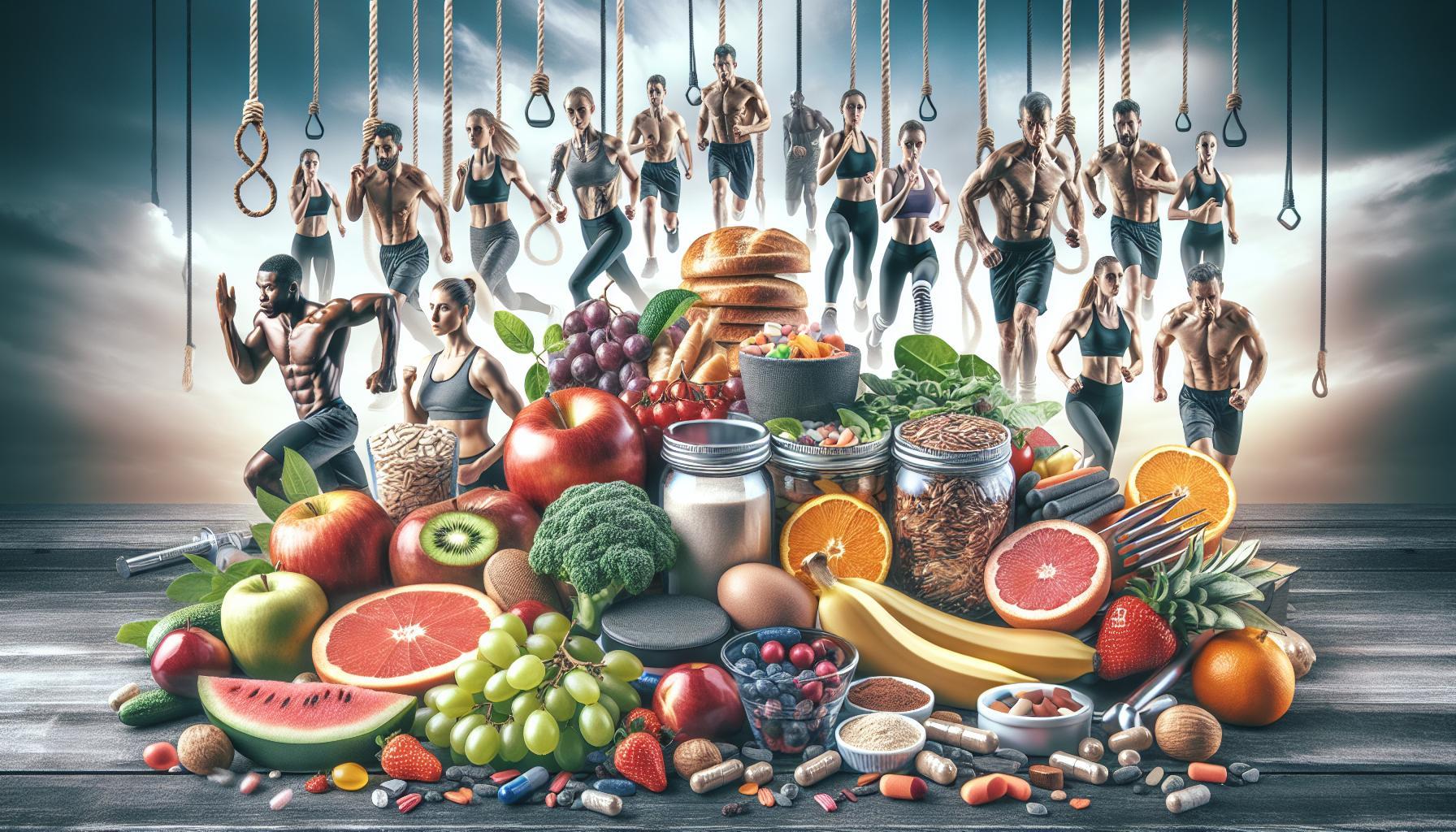As fitness enthusiasts increasingly appreciate the power of High-Intensity Interval Training (HIIT), one must not underestimate the pivotal role of nutrition in this regimen. Deciphering how ‘Nutrition for High-Intensity Interval Training (HIIT)’ influences performance can be the difference between mediocre and exceptional results. This blog post will guide you on the ideal pre-HIIT workout meals, the best way to replenish nutrients after a HIIT session, and how to leverage supplements for optimum HIIT performance. Right from the gruelling workout to sweat-inducing recovery, proper nutrition can supercharge your HIIT journey, pushing you to your limits, and helping you bounce back faster.
Understanding HIIT Nutrition Basics
Like a vehicle requires gas to run, your body needs the right fuel for effective HIIT performance. The energy demand during these intense workouts is high, which mandates a customized nutrition approach.
Fuelling the HIIT Fire
The best fuel sources for HIIT are carbs and fats. Carbohydrates provide quick energy, while fats offer a more sustained energy source. Balancing these two in your diet will ensure that you have enough gas in your tank to power through the most challenging HIIT workouts.
Smart Pre-Workout Nutrition for HIIT
The correct pre-workout nutrition can be a game-changer for your HIIT routine, providing the energy boost you need for those high-intensity efforts.
Pre-Workout Meal Ideas
Ideal pre-workout meals should have a good balance of proteins, carbs, and healthy fats. For instance, a smoothie with Greek yogurt, fruits, and a spoonful of almond butter can be a perfect pre-workout treat.
Recovery Nutrition After HIIT
After the gruelling HIIT session, your body is in repair mode, and the right post-workout fuel can speed up recovery.
Post-Workout Nutrition Guidelines
Prioritize protein-rich foods post-HIIT, as they help rebuild the muscle damage caused during your workout. Also, include some carbs to replenish the energy stores depleted during your session.
Hydration and HIIT
Never underestimate the importance of hydration, especially when it comes to high-intensity workouts like HIIT.
Hydration Guidelines for HIIT
Aside from drinking sufficient water, consider including hydrating foods in your diet, like cucumbers and watermelon. Electrolyte-rich drinks post-session can also help recover any lost salts during the workout.
Role of Nutrient Timing in HIIT
Nutrient timing can discernibly impact your HIIT outcomes.
Timing Your Meals for HIIT
Preferably, your pre-HIIT meal should be consumed 1-3 hours before the workout, while optimal recovery can be achieved by refuelling within 30 minutes to 2 hours post-session.
Supplements and HIIT Performance
Supplements can offer an extra edge to your HIIT routine when used strategically.
Essential Supplements for HIIT
Creatine, Beta-Alanine, and BCAAs can significantly boost your performance and recovery from HIIT workouts. However, consult a healthcare professional before adding any supplement to your regimen.
Conclusion
Proper “Nutrition for High-Intensity Interval Training (HIIT)” can dynamically fuel your workout, support quick recovery, and help you maximize the benefits of your fitness journey. It’s essential to note that everyone’s physiology is unique, and what works for one person might not work for another. Personalizing your HIIT nutrition basis your body’s response is key to reaping the maximum benefits.
Frequently Asked Questions
What should you eat before a HIIT workout?
A pre-HIIT meal should be a balance of carbohydrates for immediate energy and protein for sustained power. Foods like bananas, Greek yogurt, oats, and nuts are great choices.
Is it okay to do HIIT on an empty stomach?
While some people manage HIIT on an empty stomach, it’s generally better to fuel your body with a small, balanced meal before the workout for optimal performance.
How long should I wait to eat after a HIIT workout?
Ideally, you should eat a protein-rich meal within 2 hours of your HIIT workout to support muscle recovery.
How much water should I drink during HIIT?
Consider drinking a cup of water every 15-20 minutes during your HIIT workouts and stay well-hydrated throughout the day.
Should I take any supplements for HIIT?
Supplements like creatine, beta-alanine, and BCAAs can boost your performance and recovery from HIIT workouts. However, always consult a healthcare professional before starting any supplement regimen.










